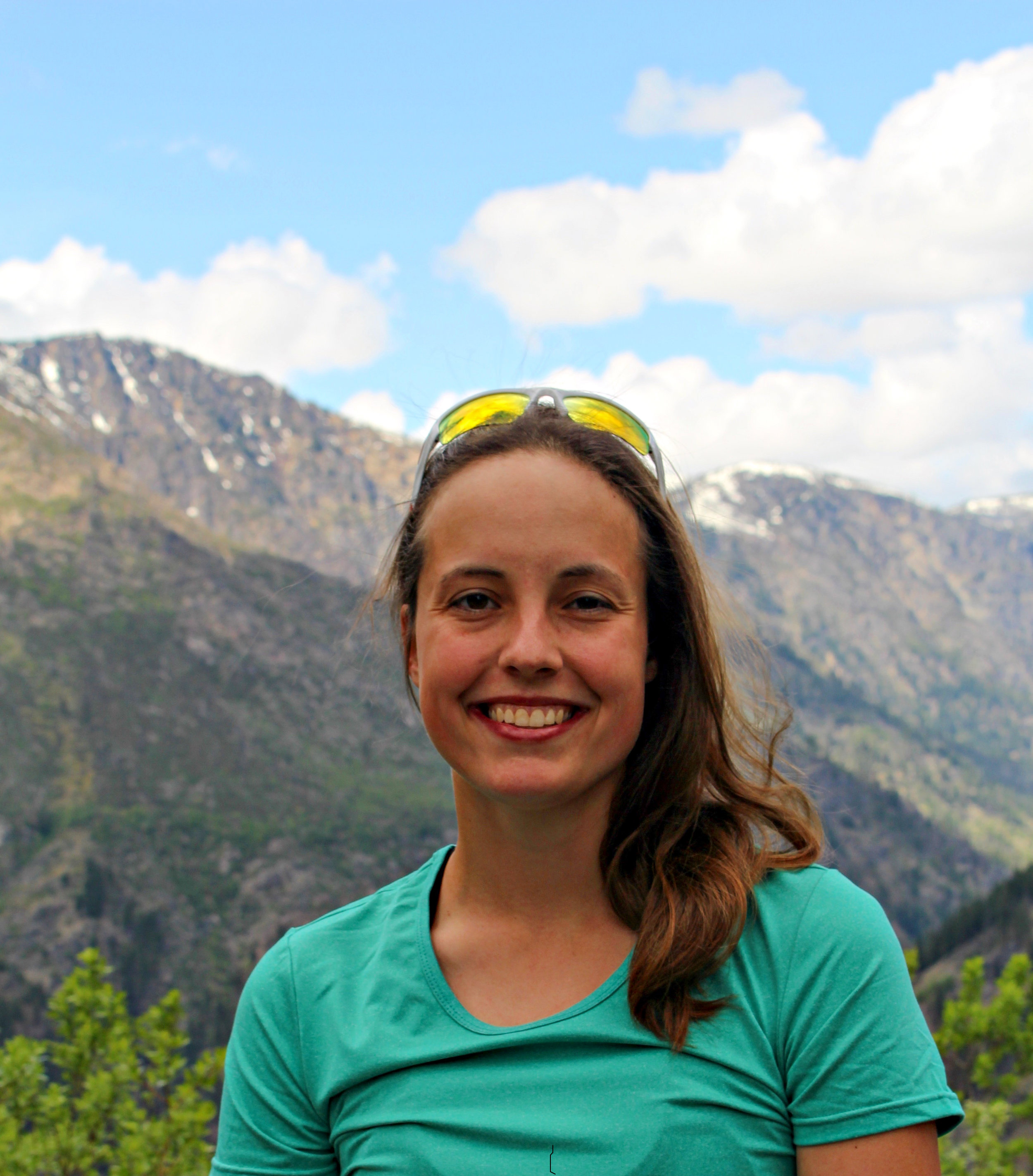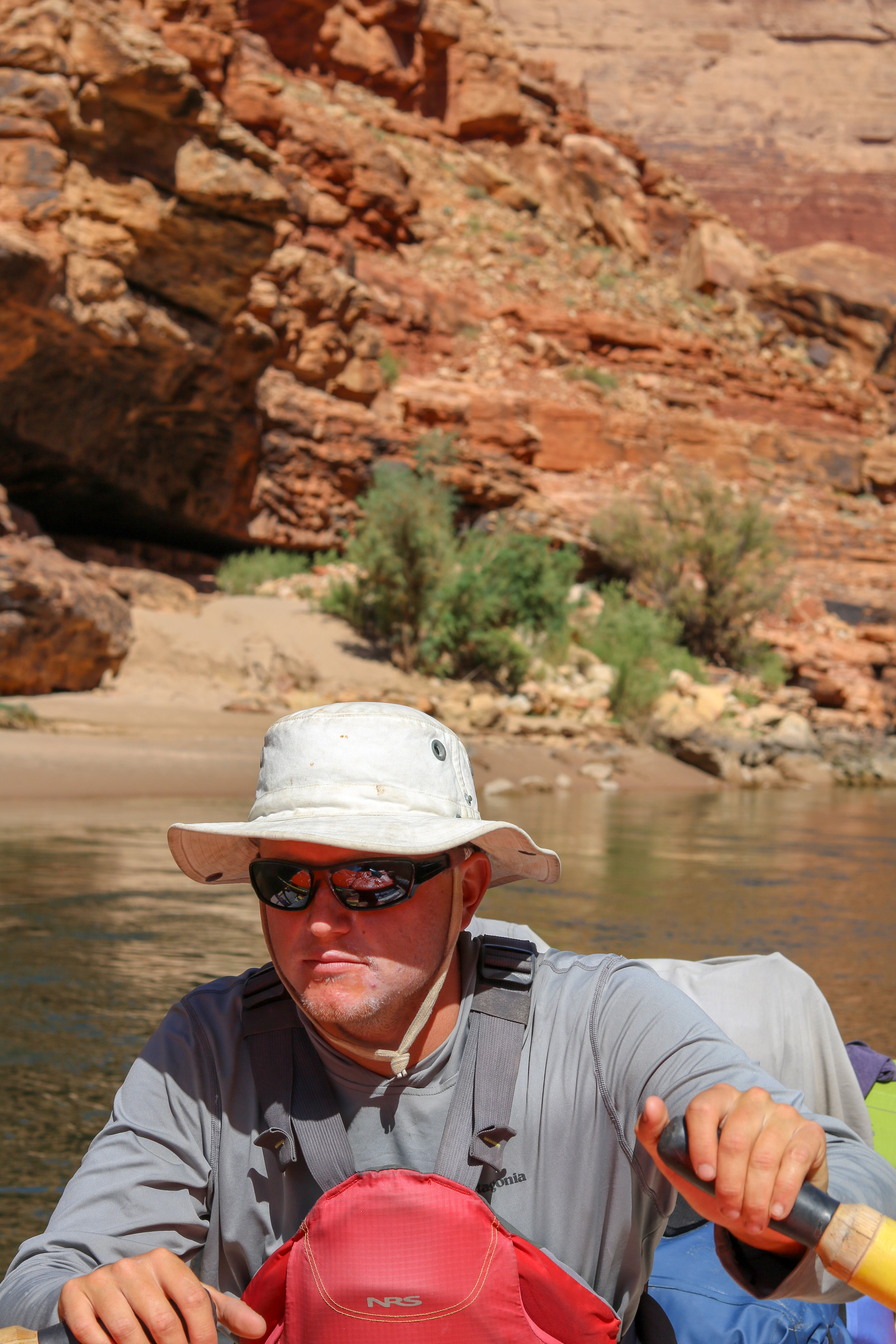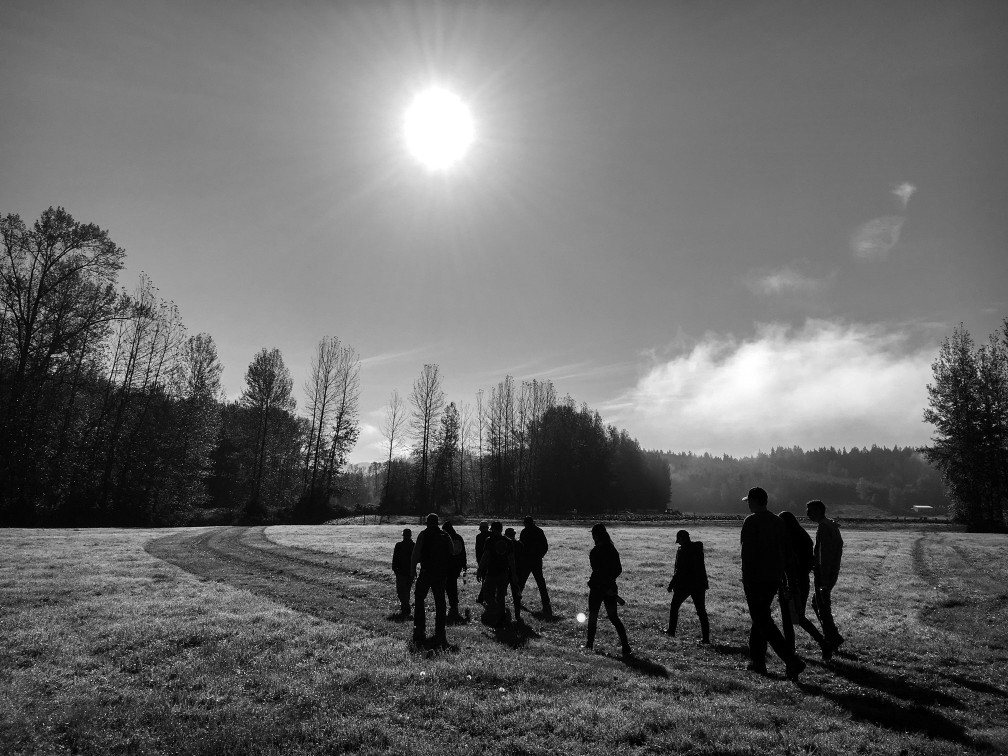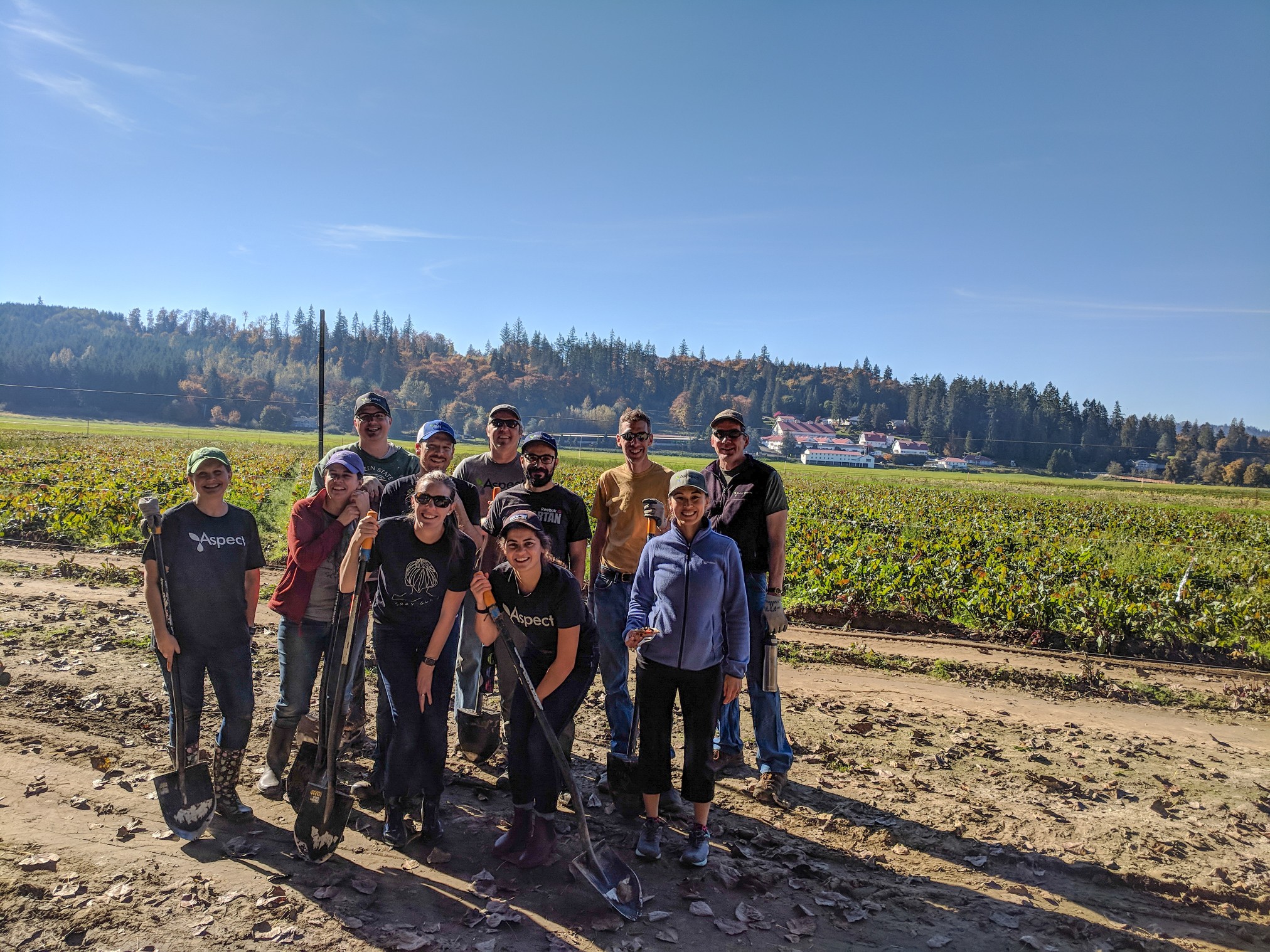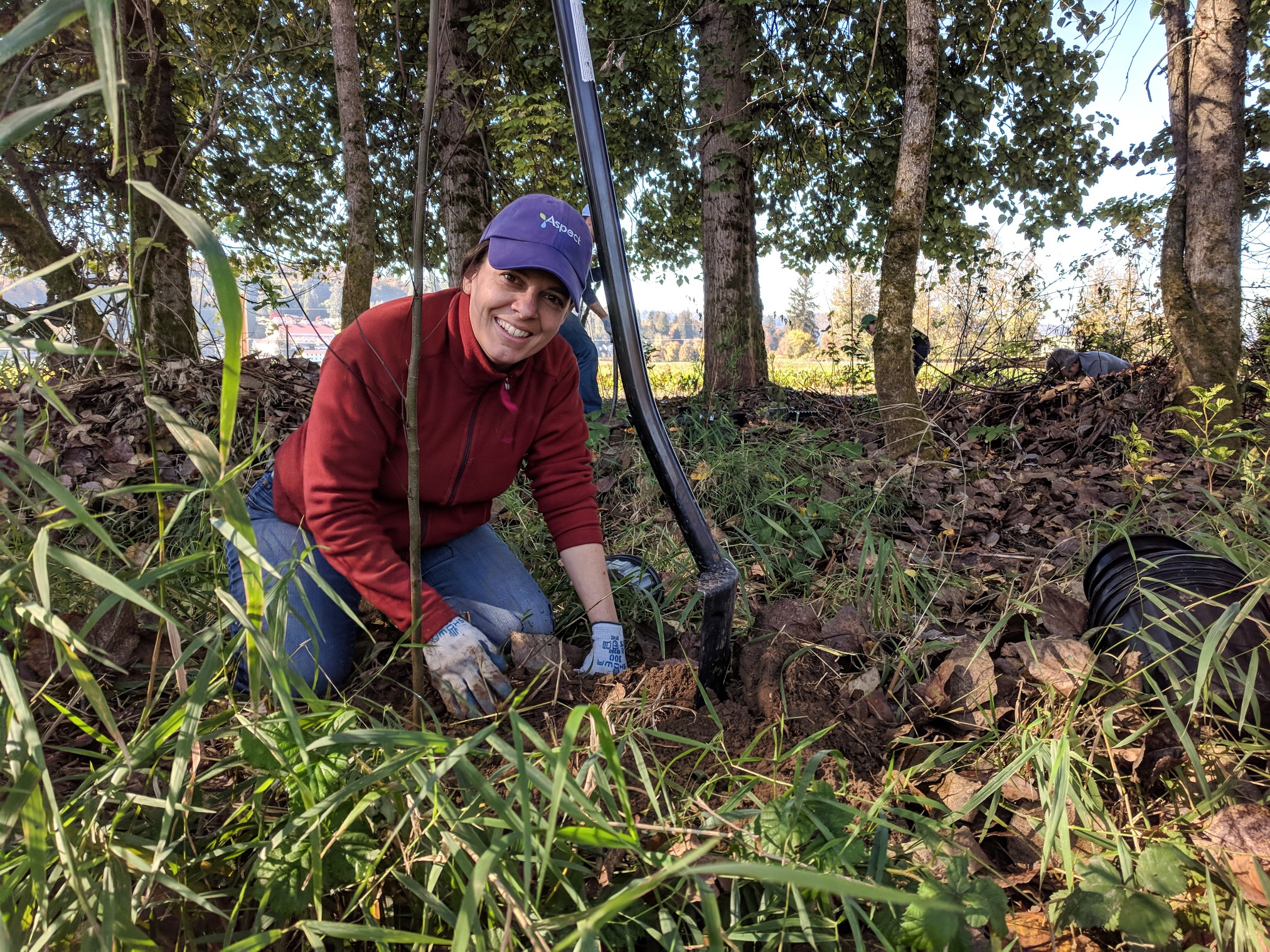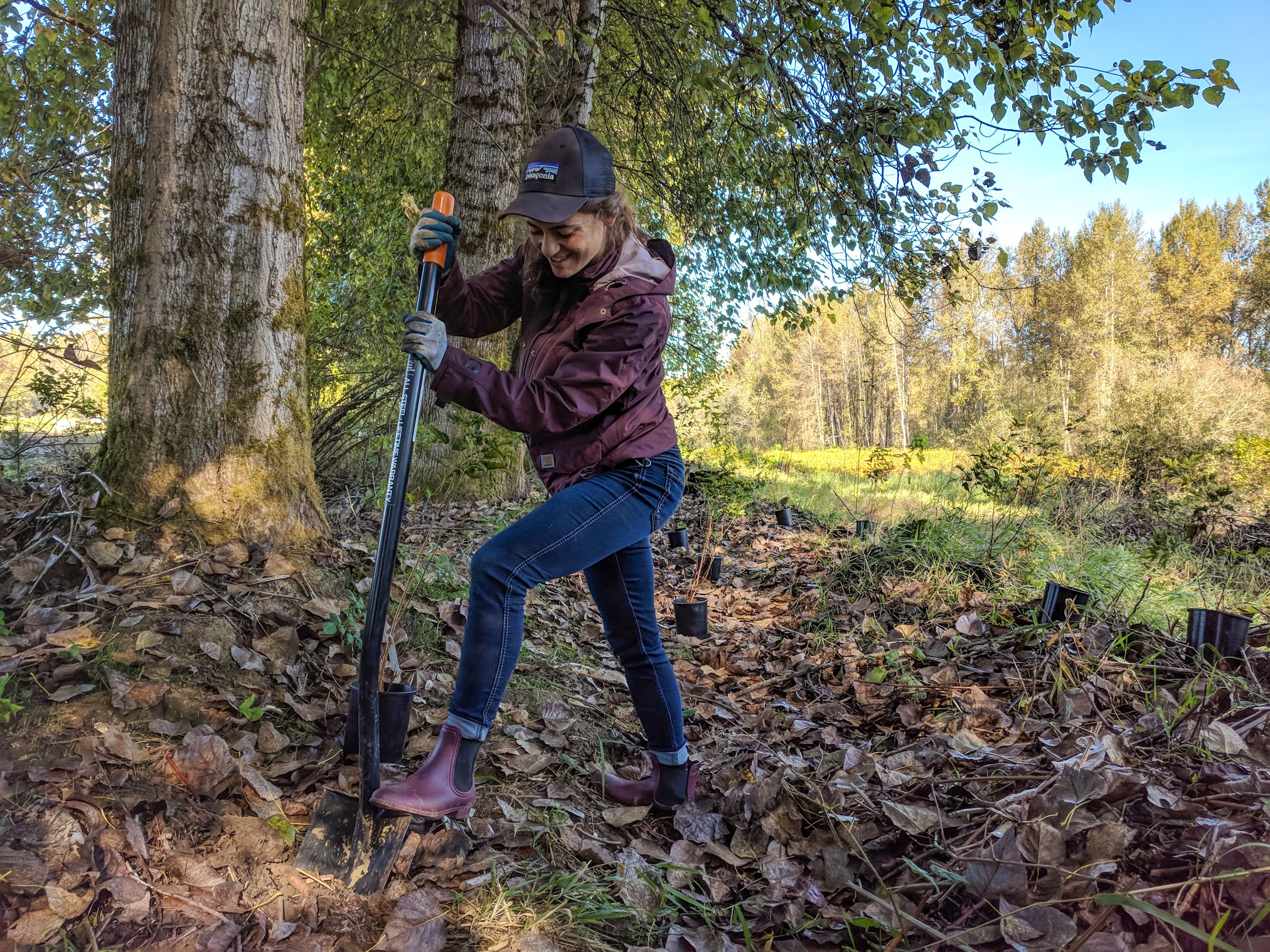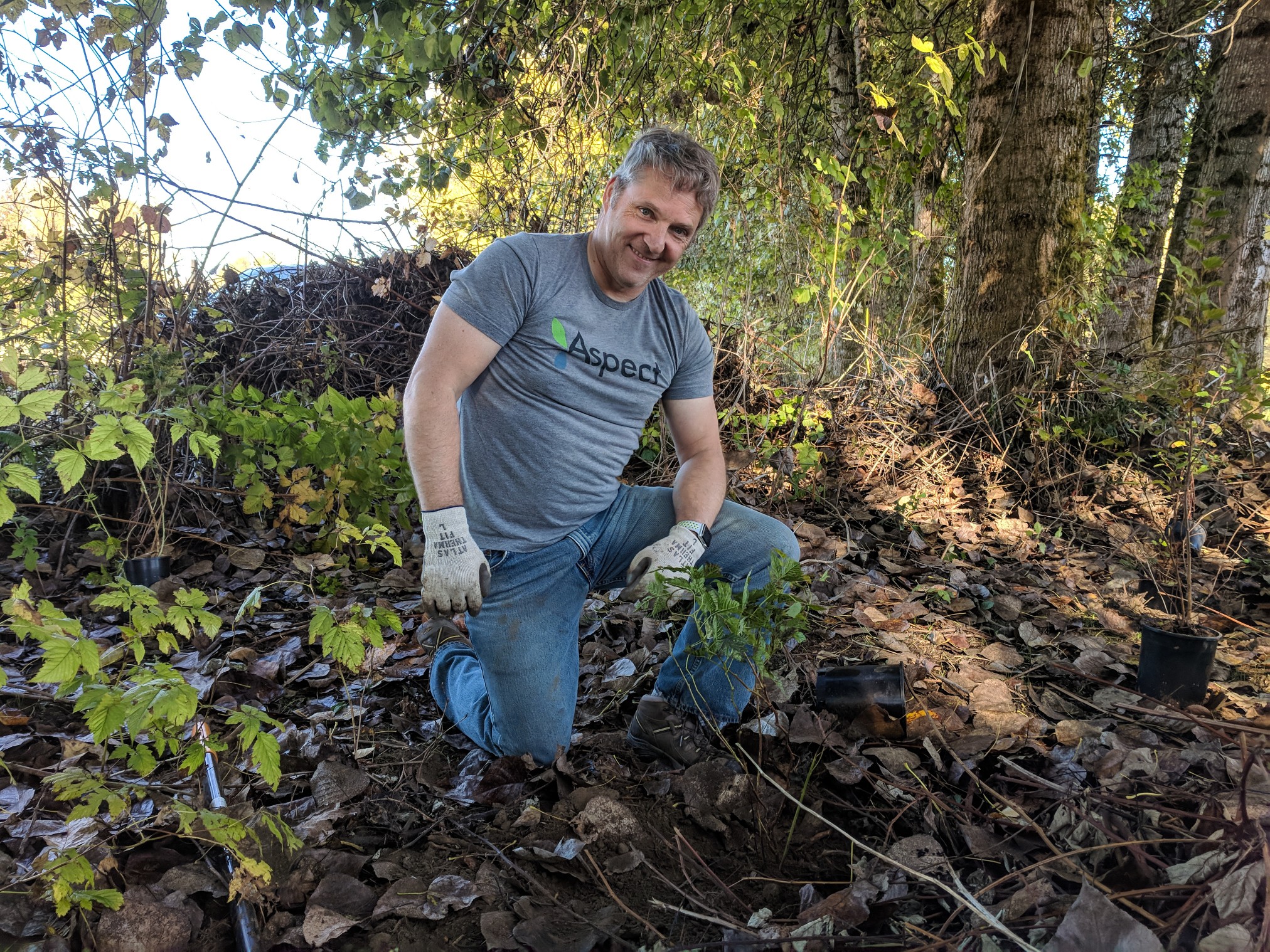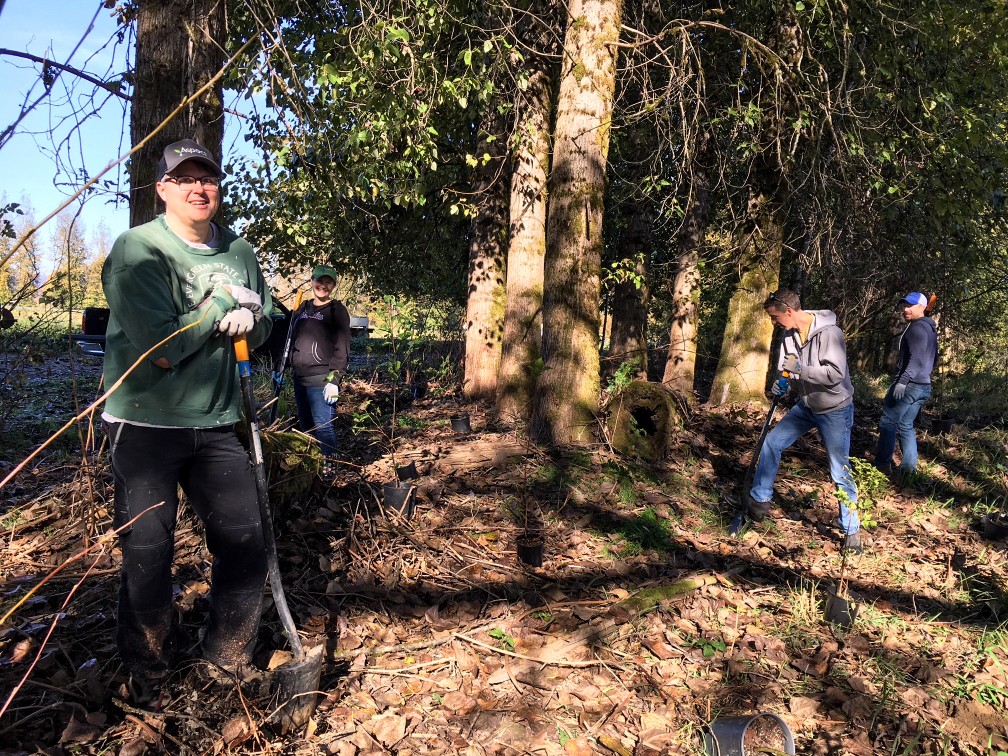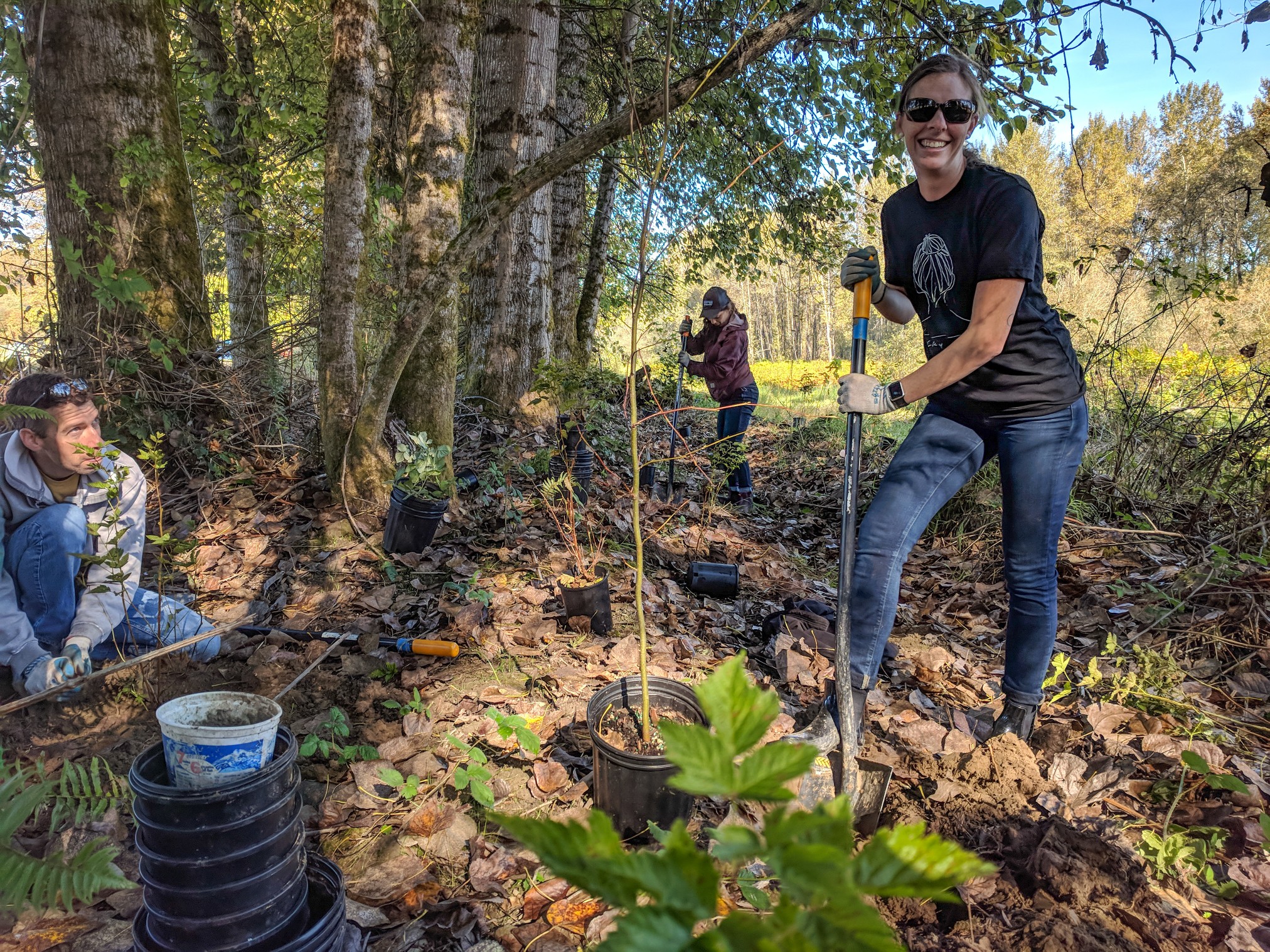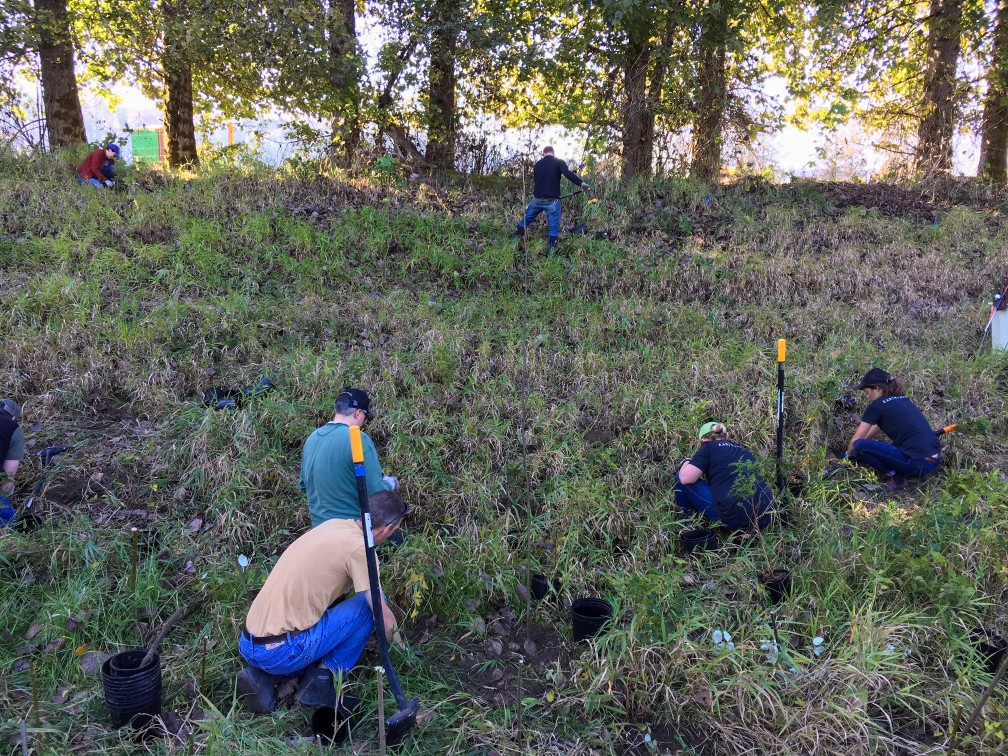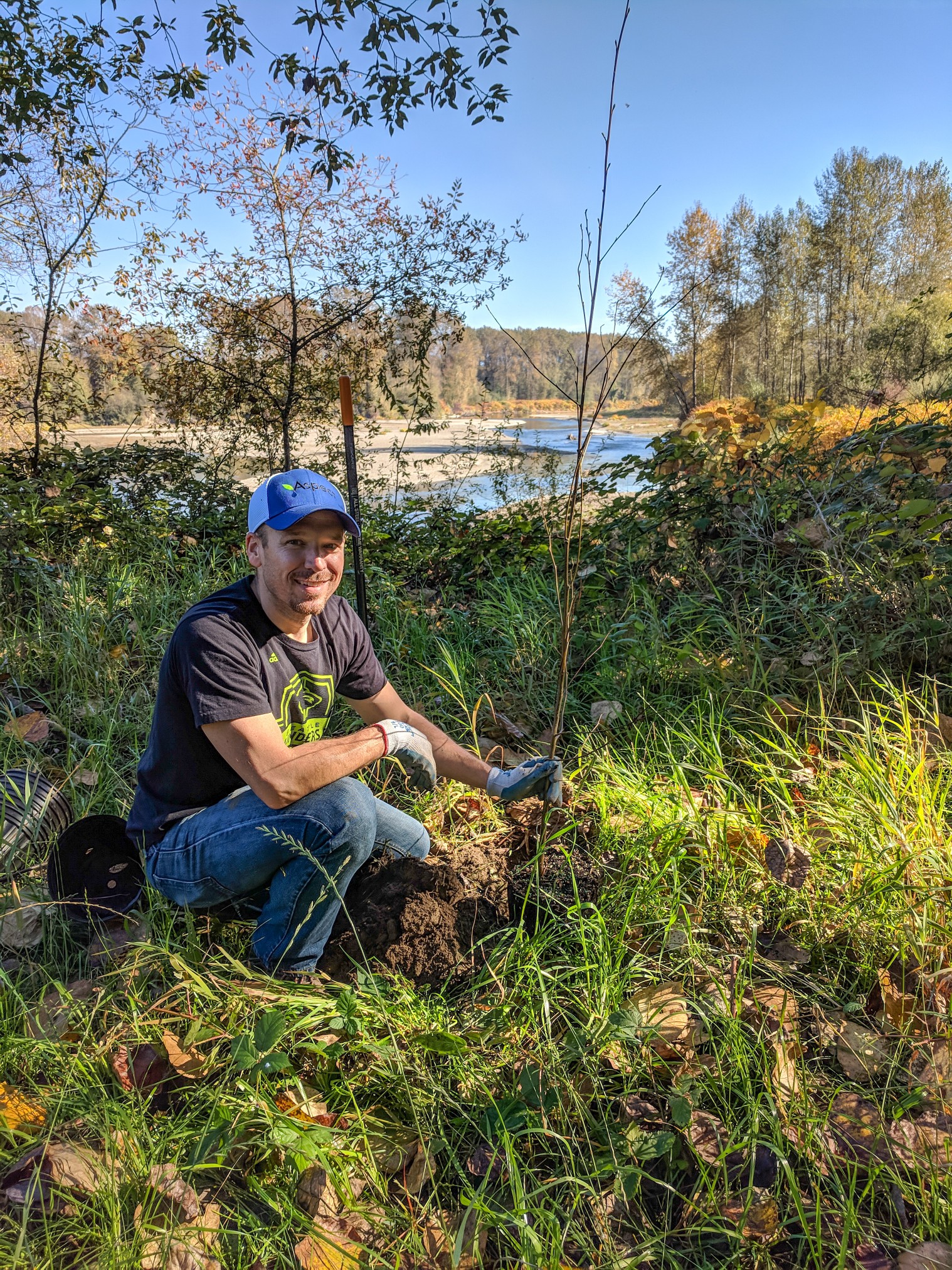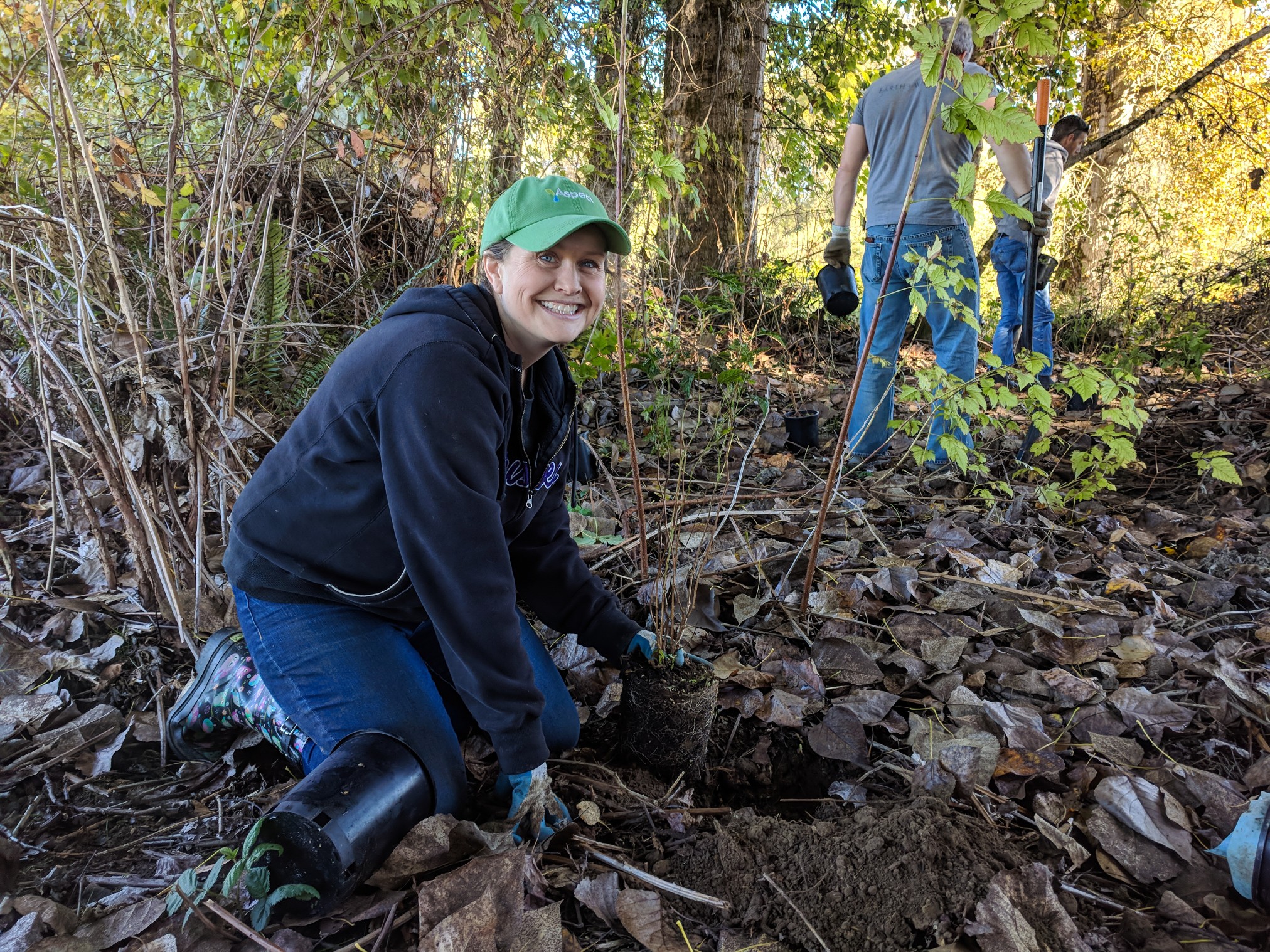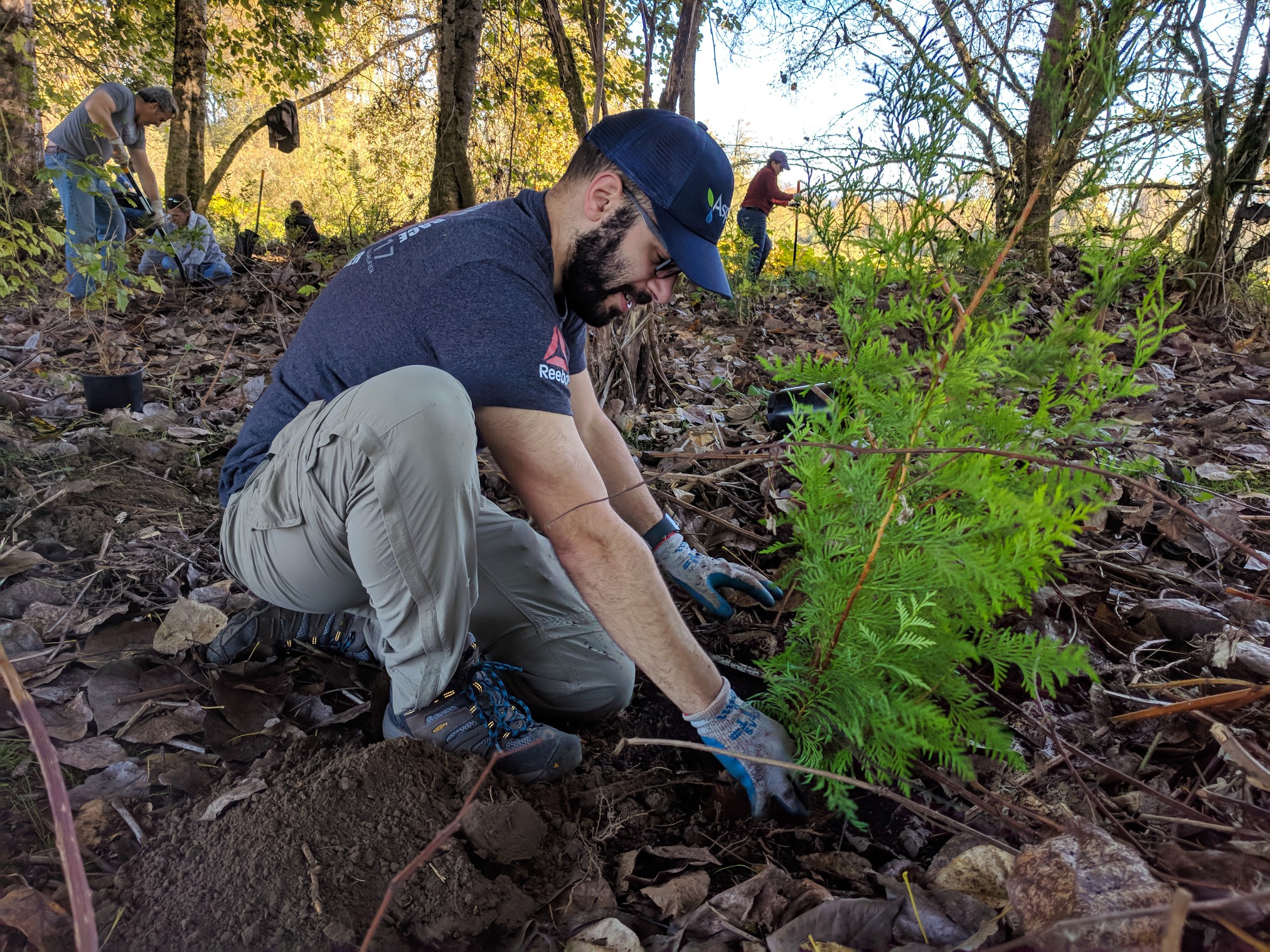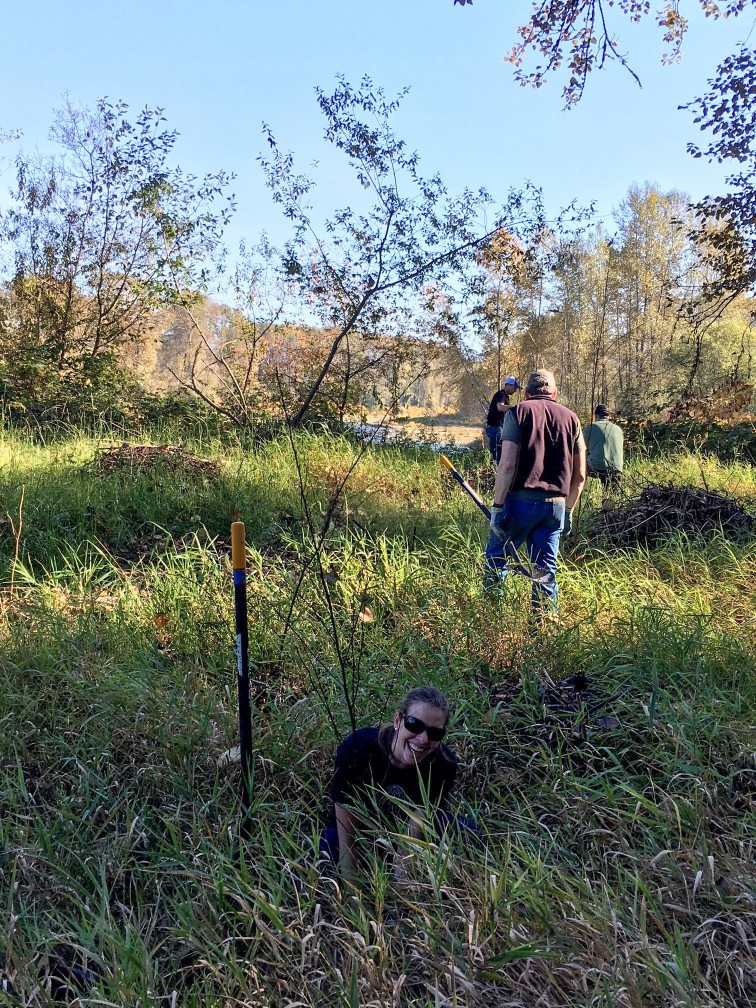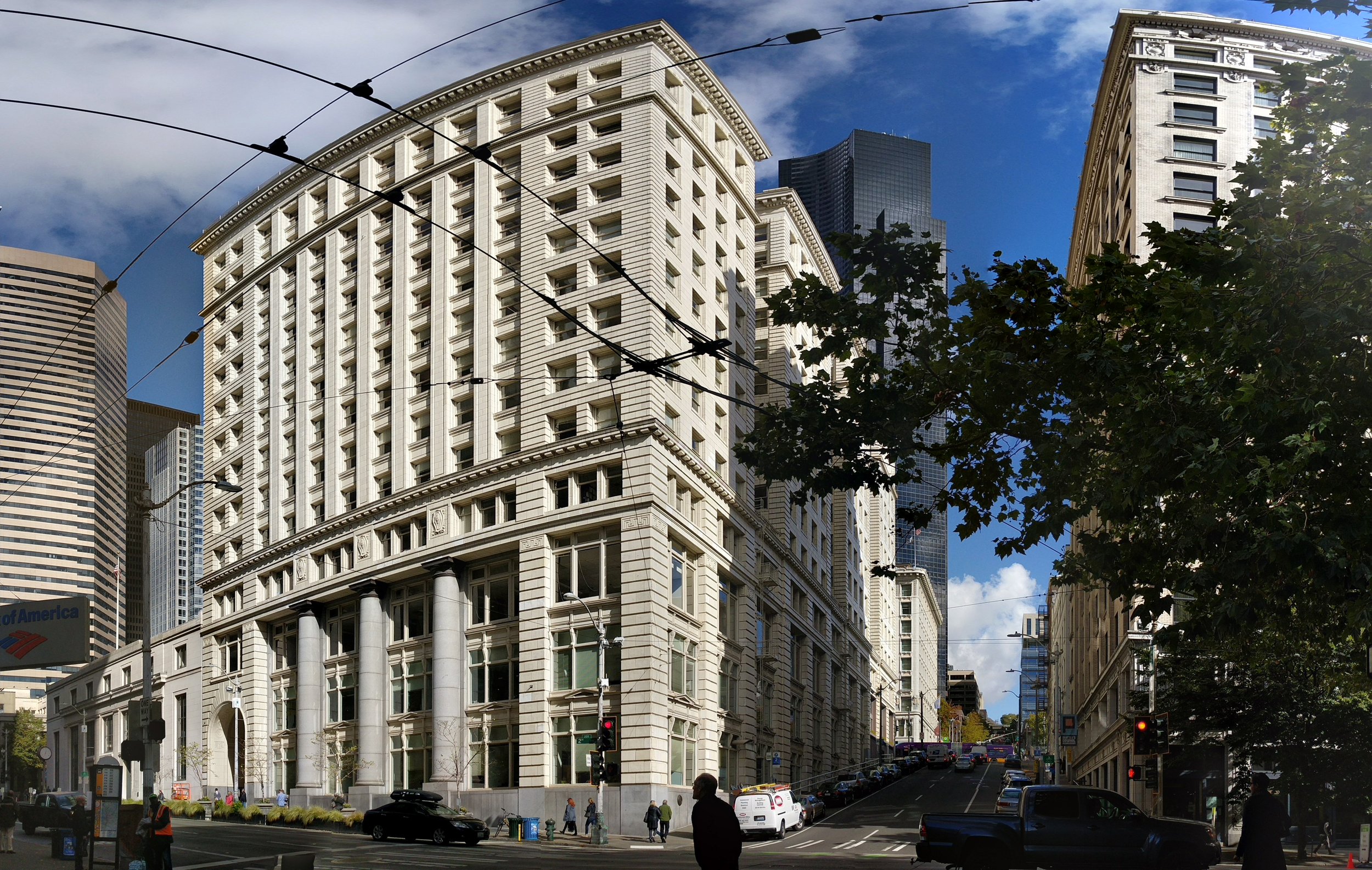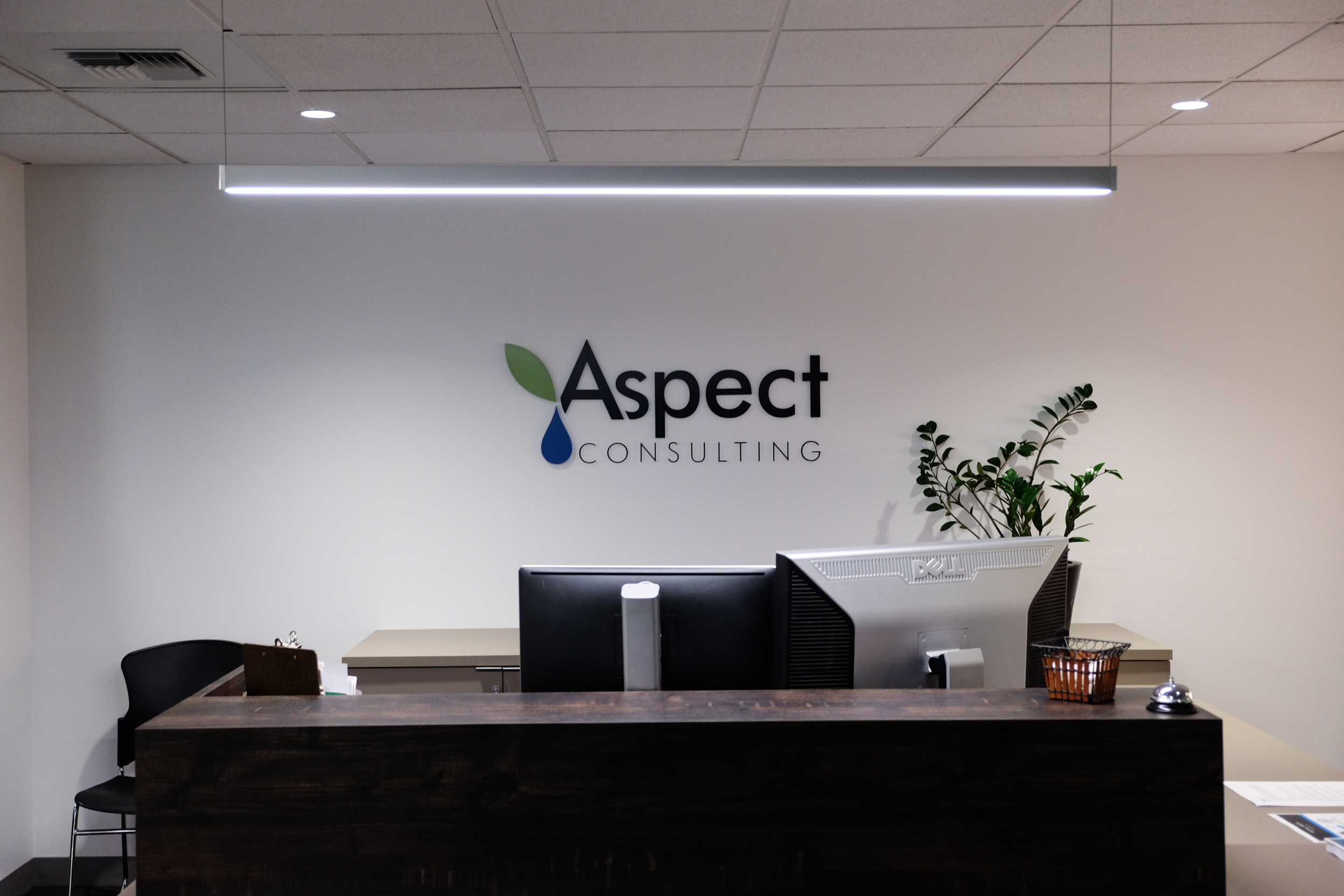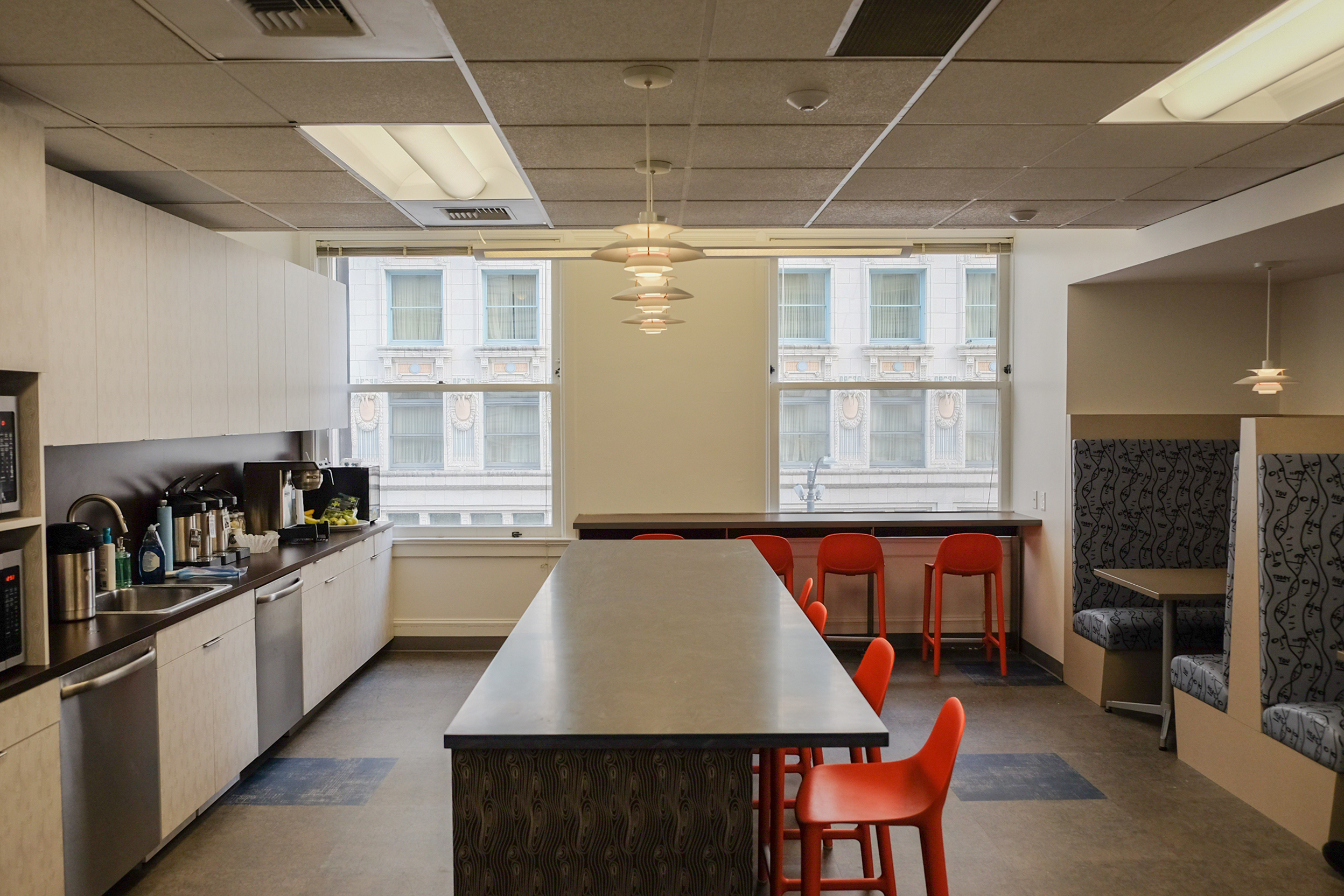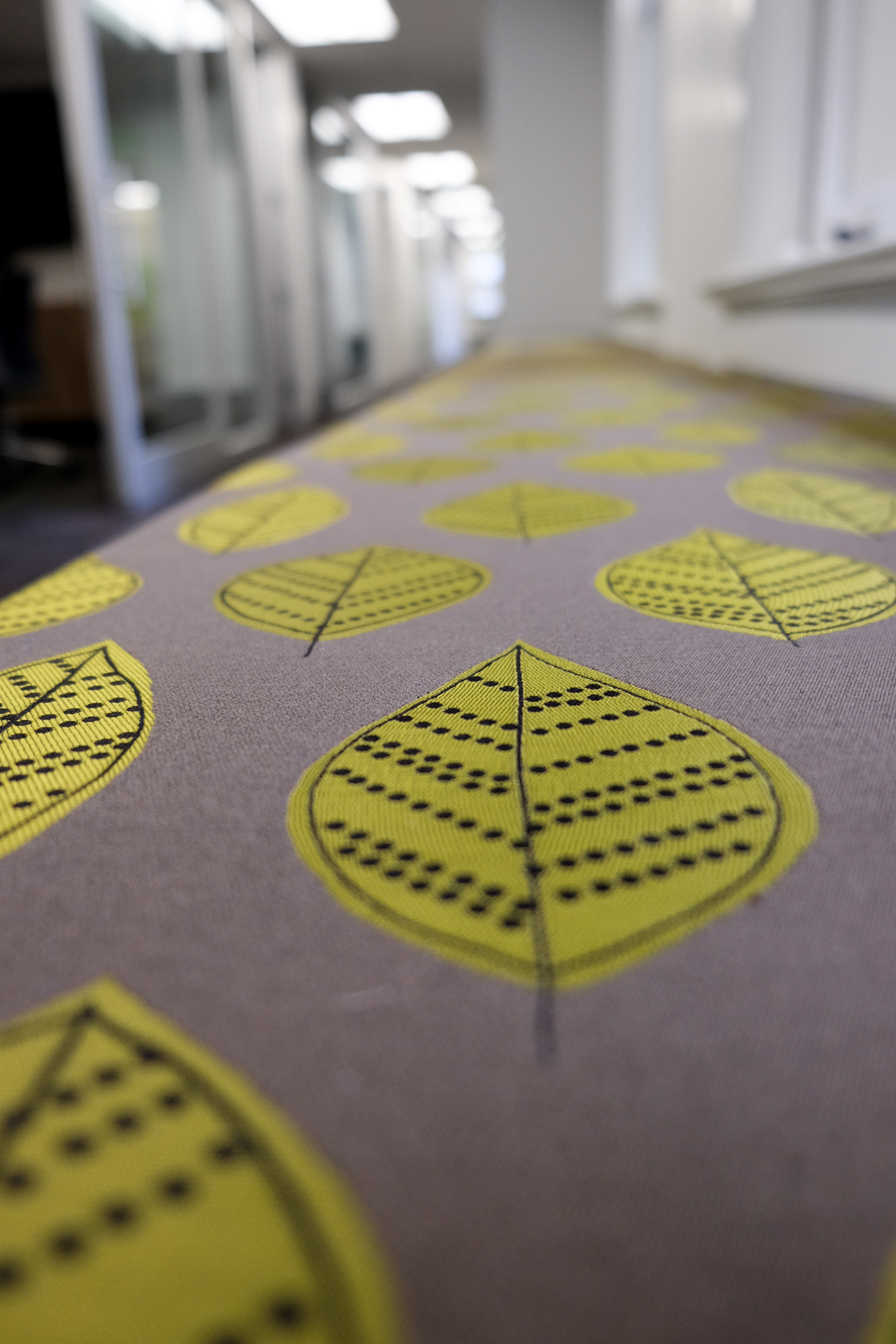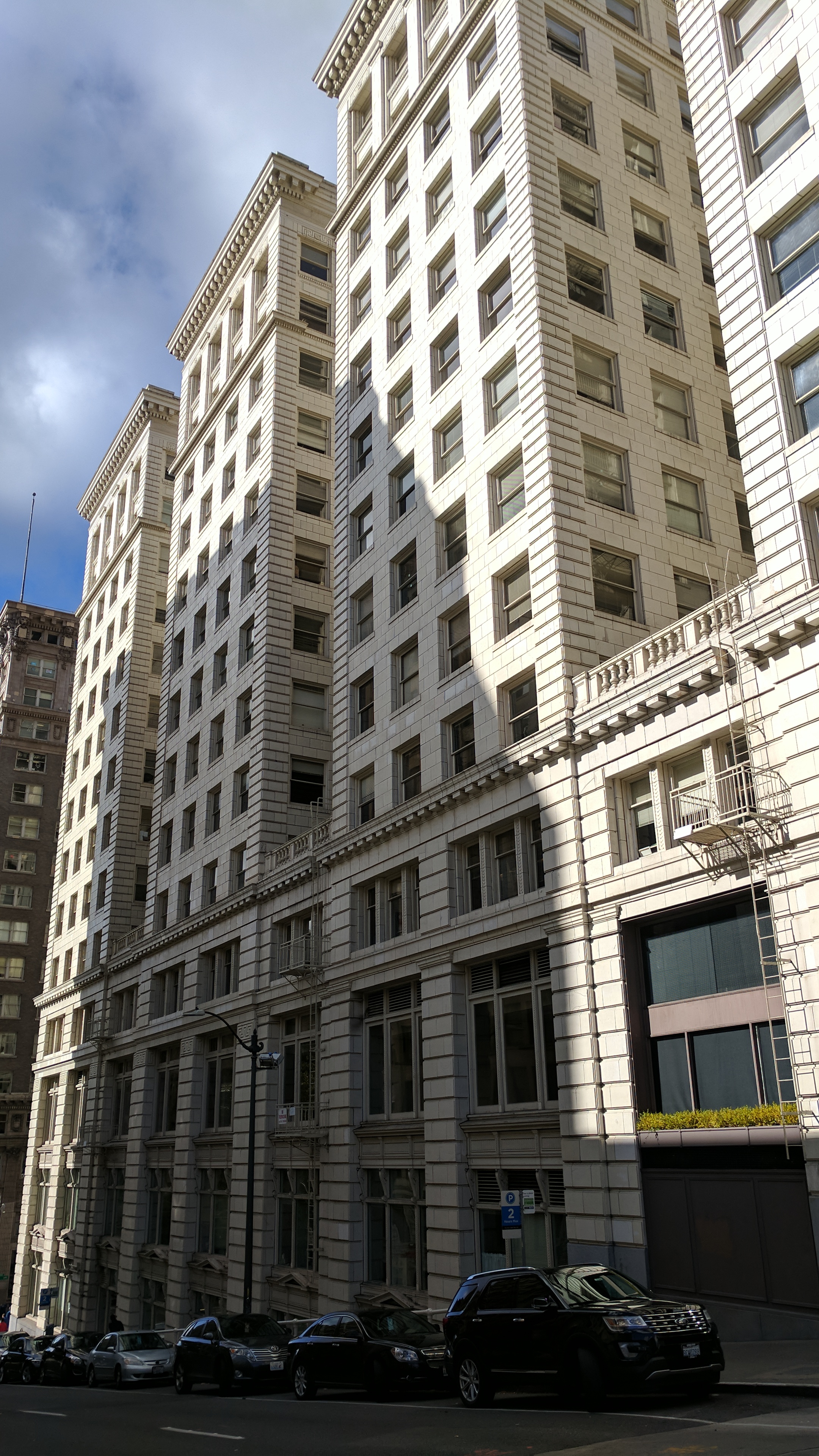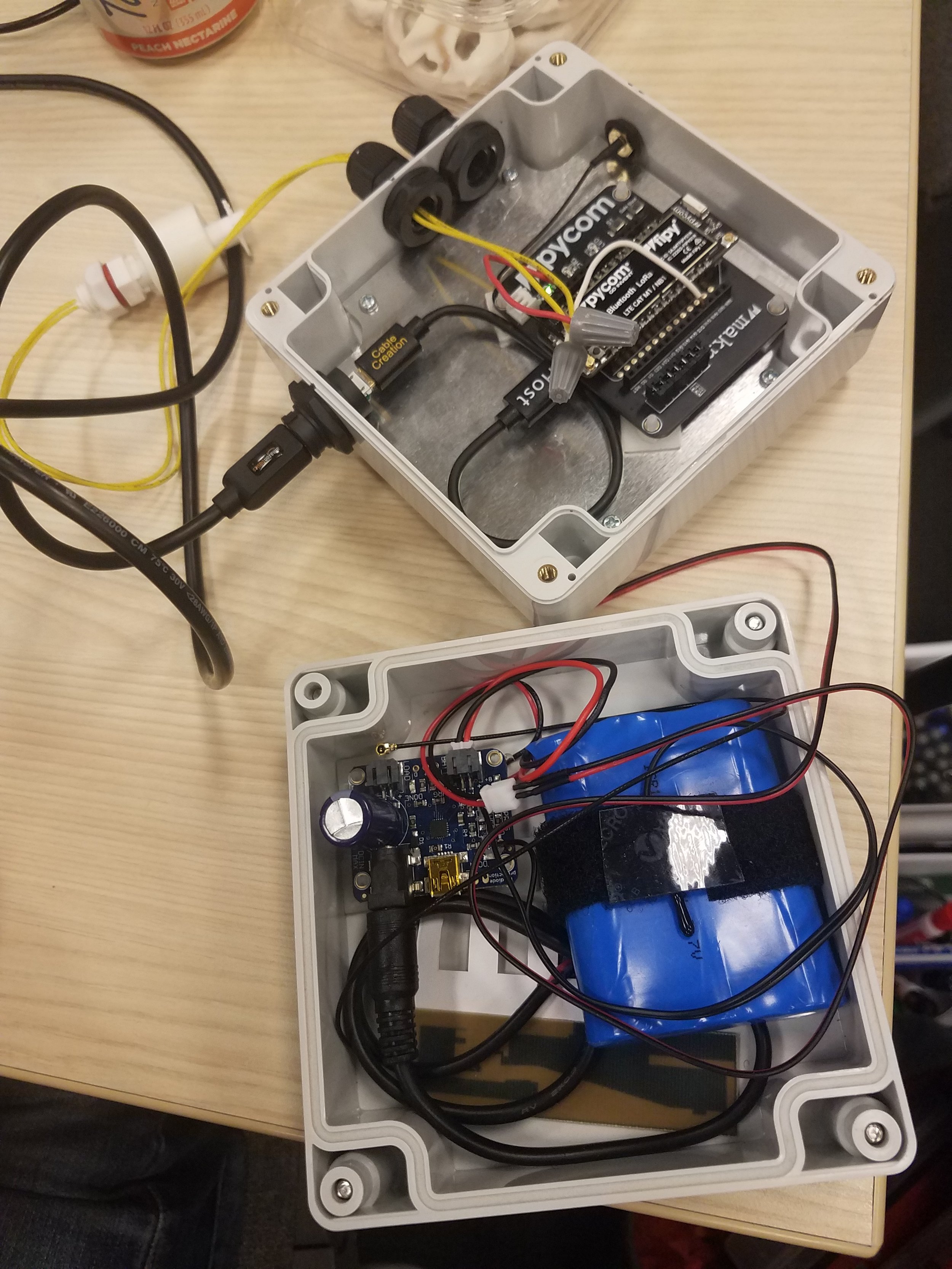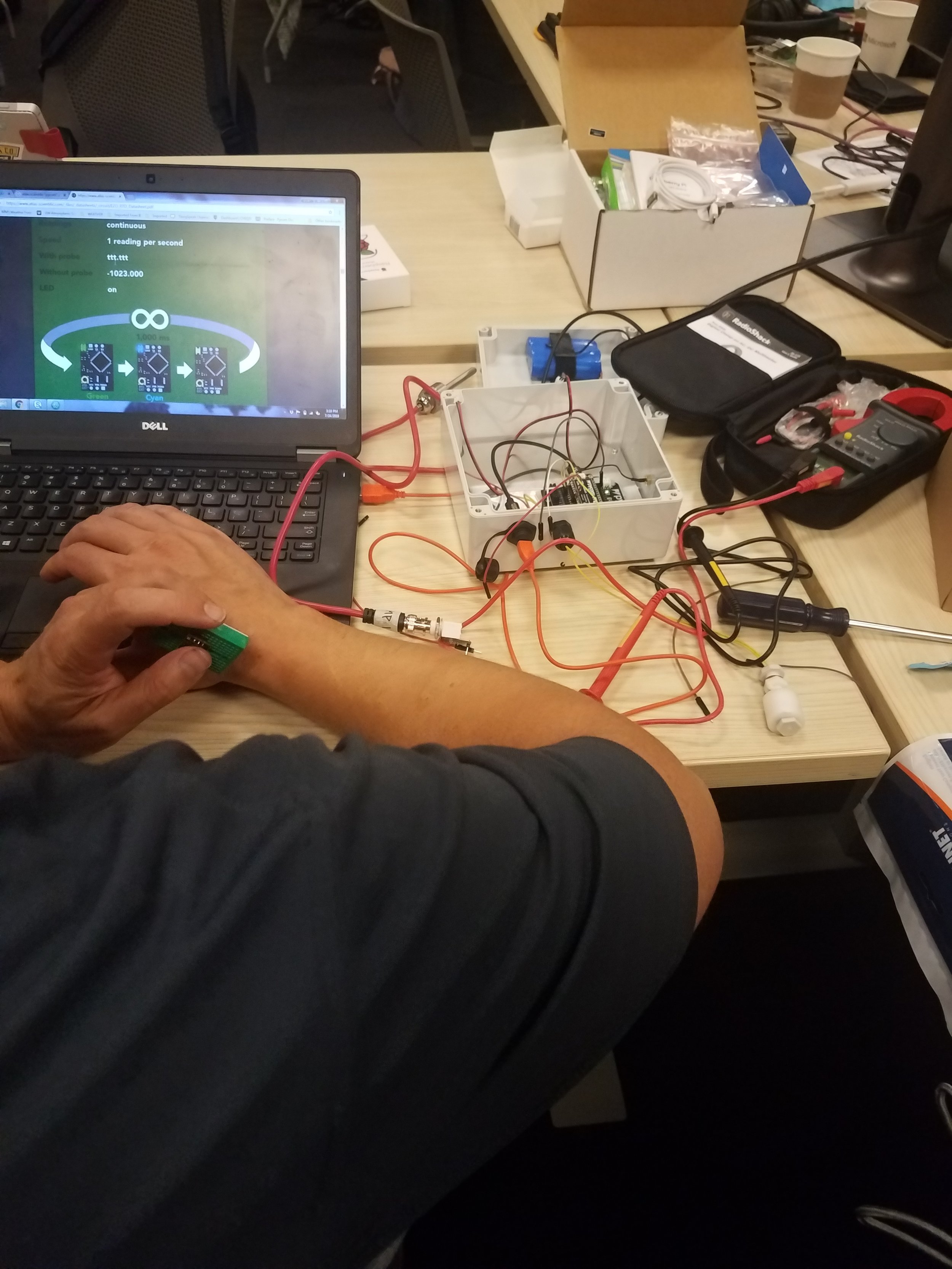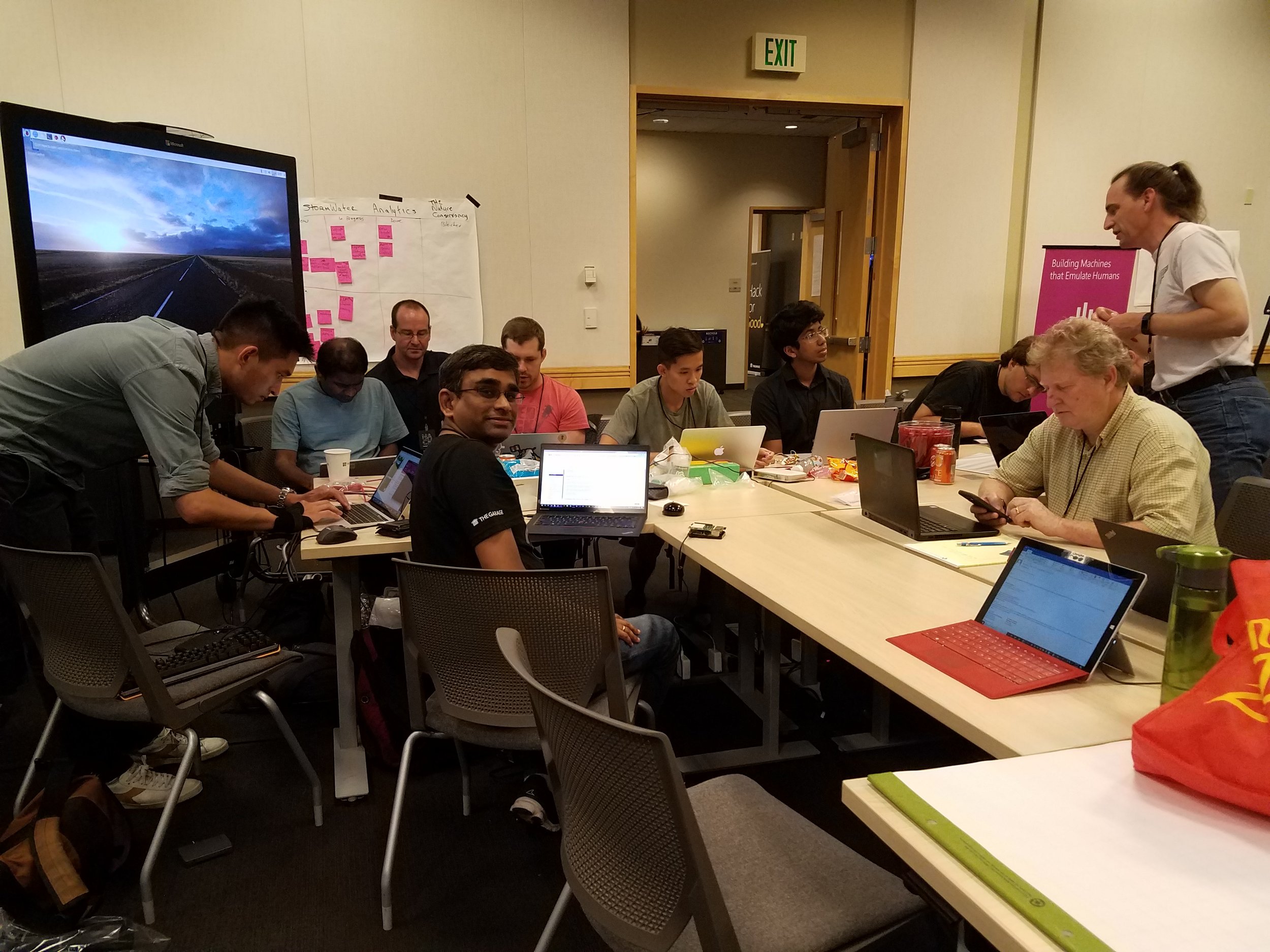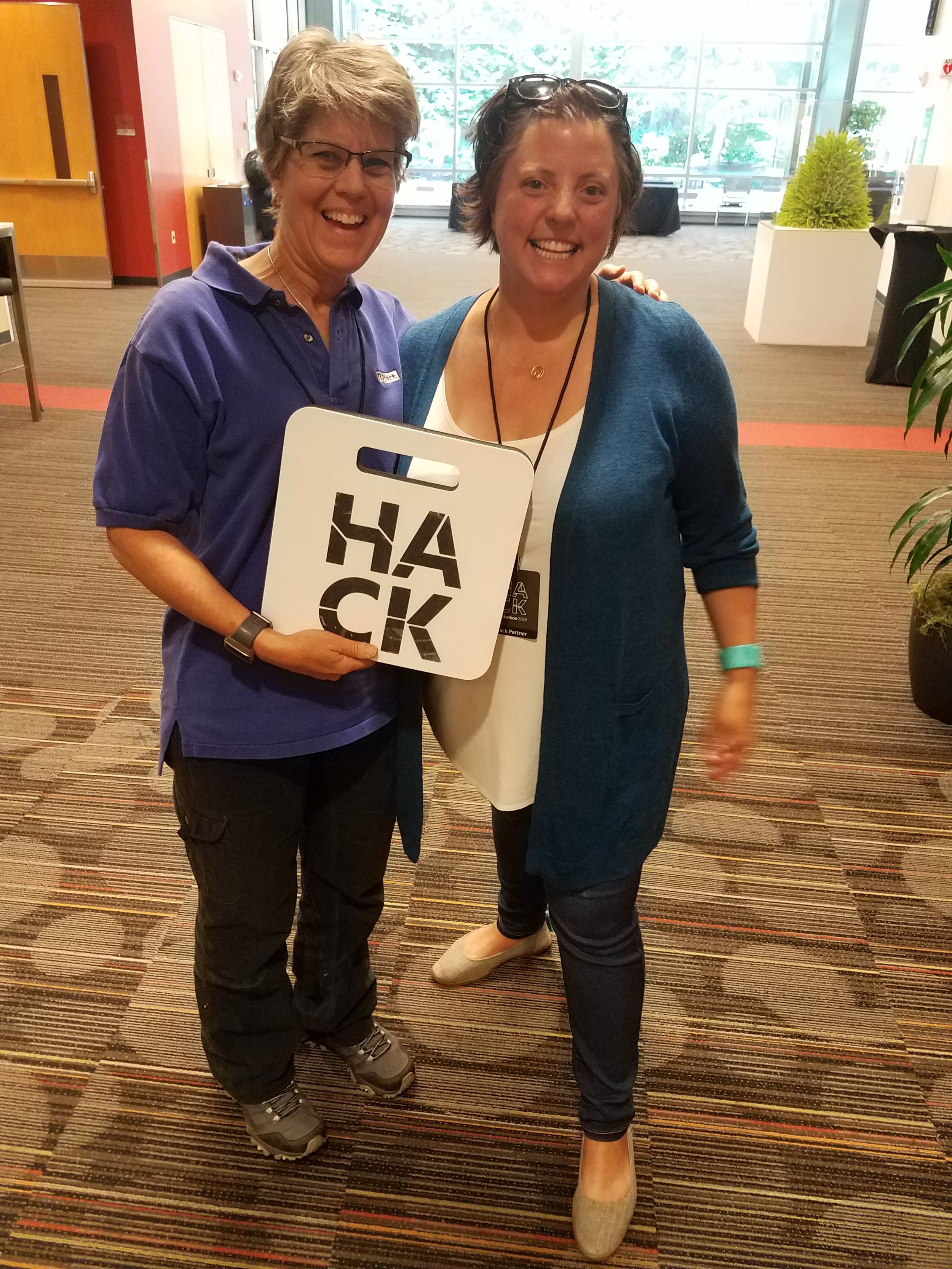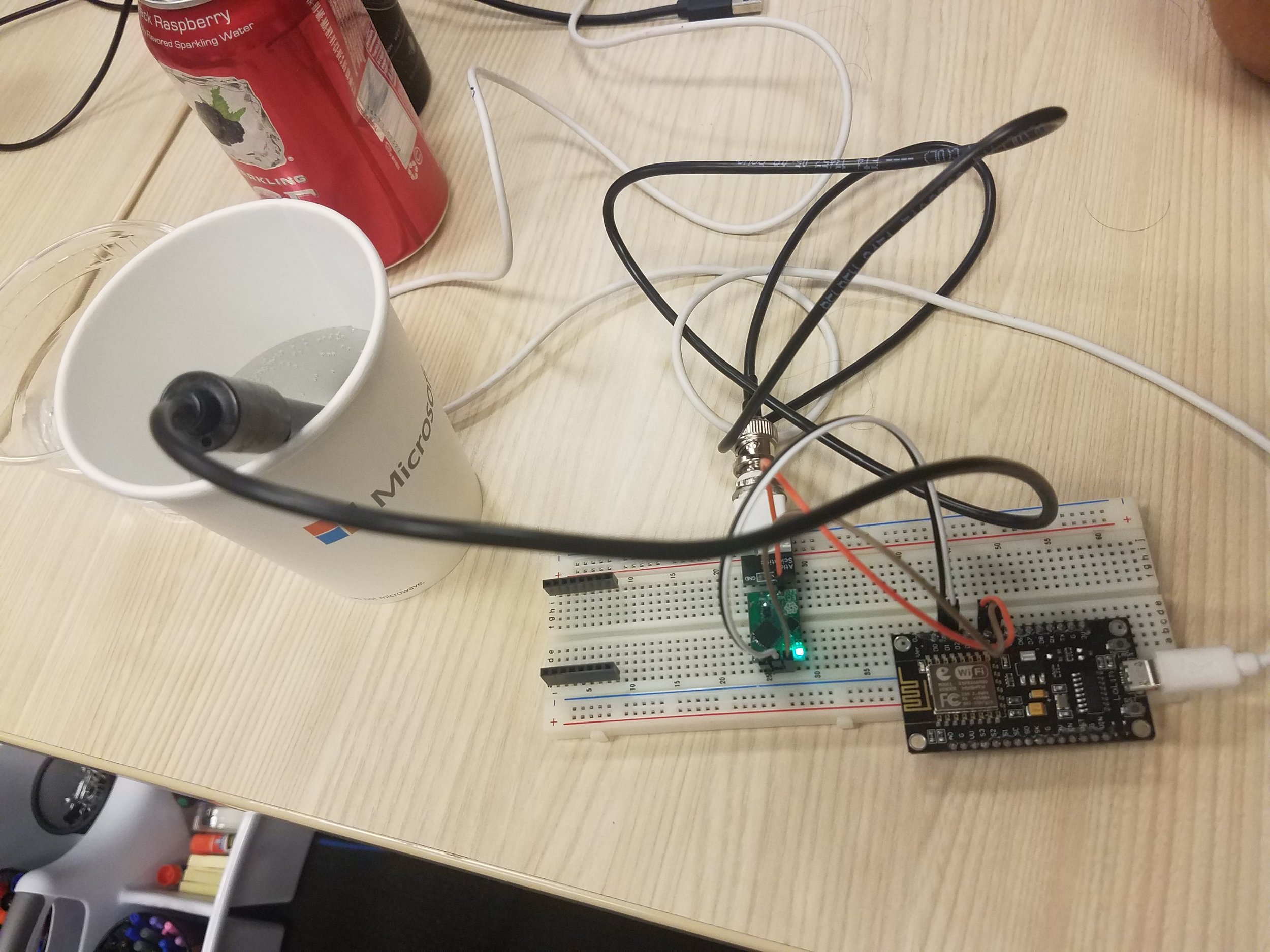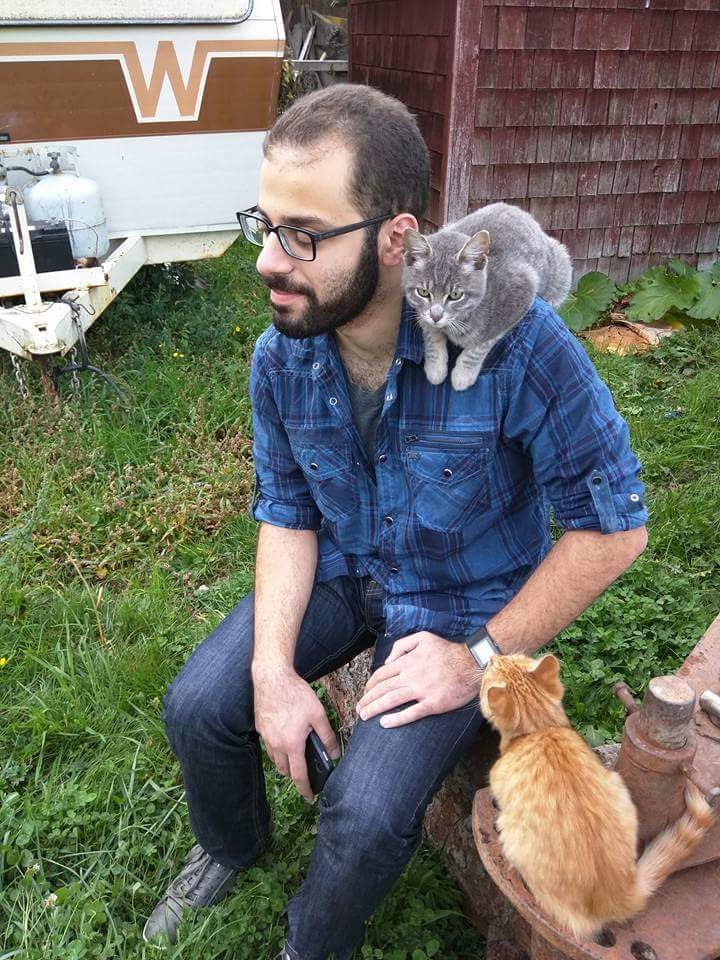In the earth science consulting world, our work is innately photogenic. Stream gauging at a quiet bend in the river. Installing new pin piles at a pier on a scenic city waterfront. Even the “grimy” photos, like well sampling at a contaminated site, provoke interest and fascination. Staff take pictures to document their technical work and those same photos are the lifeblood of firm branding and storytelling. However, Aspect’s marketing team, tasked with telling our firm’s story, can struggle with harvesting high-quality visuals. The photos are out there, yet they may be buried in forgotten file locations or staff’s work phones. Just asking “Have you got any good pictures?” yields scattershot results, which often then means reusing the same tired photos again and again.
So, a year ago, our marketing group decided that we needed a better way to consistently draw out quality photos. What better incentive than a friendly contest?
I love it, it gives me glimpse to what our field people are up to, since I am in the office 100% of the time and not a field person, I envy them the fun they have when in gorgeous location in beautiful weather and not so much when they are bundled in the snow and rain.
- Mirka Ramsey, Accounting Lead
The Idea: Prizes and Public Recognition
We started with a weekly raffle, awarding tickets to all contributors and bonus tickets for the week’s best photos – all leading up to a cash prize drawing and winners that we celebrated at quarterly firm-wide meetings. After the first call for entries, staff responded with 54 pictures. Where had these all been hiding?
If we had only received those first 50 photos, that would have been a modest success. However, we were surprised and amazed that the photos kept coming week after week. We knew we had something special when, at the first quarter’s staff meeting, the photo contest became a highlight. It turned the meeting into an informal art exhibit, where the employees and their beautiful, funny, and, often times, poetic snapshots of field and office life were the stars of the show. The idea continued to gather steam and, by the end of the year, we’d received over 1,100 photos.
It’s awesome! I love seeing the work that other folks are doing. I think it improves our company culture: gives us something to talk about with staff we might not interact with otherwise, and also gives me a better sense of pride in some of the work that I’m doing when I share my photos.
- Hannah McDonough, Staff Geologist
The Takeaways
One thousand photos later, if there’s one general takeaway, it’s that being curious and asking staff what they are working on—and learning what they’re excited about—is always worthwhile. The photos gave our marketing team materials to help tell Aspect’s story, but also delivered an unexpected benefit: they shone a light on firm culture. Over the photo contest’s first year, we found that:
The field staff’s photos remind everyone of the aesthetics of working in environmental consulting – they are outdoors a lot in both beautiful settings and grimy conditions. It’s a way to appreciate the beauty and commiserate when things are grim.
It’s not just about the projects. We got many photos of what staff are doing outside of work –biking trails, climbing mountains, running races, vacationing in places sunnier than the Pacific Northwest.
Sharing our work brings staff of all levels together around firm culture and put names to faces before people may have met in person.
Aspect staff are now in the field, at industry functions, or just in the office, with an eye out for photo opportunities.
Submitting on a regular basis helps keep taking photos in the front of my mind so I have more photos of my projects which helps when putting together reports. I enjoy seeing others as it gives insight into what the rest of the company is up to. I often get a sense of a “can-do” attitude mixed with people enjoying what they are doing.
- Bryan Berkompas, Senior Hydrologist
A Hub for Storytelling
As the photo contest enters Year Two, the marketing team now has an established source of photos to illustrate our work in proposals and spotlight our culture for recruiting. Field staff have told us that taking photos helps them with their project work and report writing. And everyone enjoys seeing what our colleagues are up to and takes pride in our collective work.
Follow our photographers on Aspect’s Instagram page.




